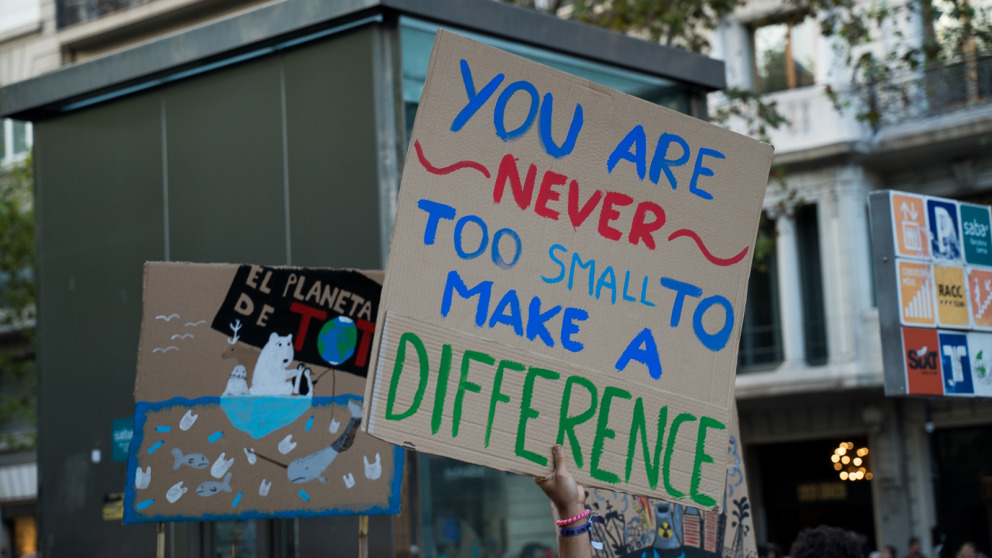Young People and the Struggle for a Sustainable Future
09.05.2022
The climate crisis continues to be a major concern for many young people, who must also grapple with new and emerging crises such as the war in Ukraine. This has serious implications for mental health and lends urgency to the issue of intergenerational justice. In recent years, young people have sought to bring the responsibilities of older generations toward younger people more sharply into focus in environmental and climate debates. In a new paper, IASS researchers show how sustainable futures have become an important issue in climate policy discourse.

“Future generations are often not considered in politics because of its presentist orientation. There is a general tendency towards presentist responses in democracies because investing in longer term policies often does not pay off in the face of short election cycles”, explains lead author Henrike Knappe (IASS). Since 2018, however, the topic of intergenerational justice has come to the fore in the public debate, prompted not least of all by various extreme weather events and the launch of the Fridays For Future movement. In their paper, Knappe and IASS Scientific Director Ortwin Renn analyse youth actors’ understanding of intergenerational justice and “sustainable futures.”
UN youth network calls for formal role in decision-making
The study focuses on two global youth networks: the United Nations Major Group for Children and Youth (MGCY) and Fridays for Future (FFF). The MGCY is firmly embedded in the UN system, and its speakers and international conference participants are often recruited from European and North American non-governmental organizations. One of its main demands is the equitable participation in political decision-making processes of civil society actors committed to intergenerational justice. MGCY members identify themselves as legitimate representatives of future generations. They also understand intergenerational justice as something that is not to be expected only at some distant point in the future, but rather as something that must be developed in the here and now in the face of the immediate danger posed by climate change and the violation of planetary boundaries.
Fridays for Future draws attention to North-South divide
Fridays for Future, on the other hand, is an informal alliance of social movements that draws its members and supporters from groups around the world. FFF activists often point out that climate justice and social justice go hand in hand. They draw attention to the glaring inequalities between the Global South and the Global North and see youth empowerment as a decisive factor for a just and sustainable future. FFF features many voices from the Global South that are critical of global inequalities. They also reflect on their own immediate experience with climate change that is not a matter of the future, but a part of their present daily lives.
Debate on sustainable futures can advance climate policy
Overall, the researchers discerned a shift in the perspectives of both groups from long-term futures to present experiences with the direct effects of climate change. “For these groups, the term “intergenerational justice” addresses both intra- and inter- generational inequality – in other words, they are fighting against inequalities that exist between peers, in particular between different global regions, as well as inequalities between people of different ages and those as yet unborn,” explains Henrike Knappe. The increasing role that sustainable futures play in the political debate could encourage more ambitious climate policies, the authors argue.
Knappe; H. and Renn; O.: Politicization of intergenerational justice: how youth actors translate sustainable futures. European Journal of Futures Research, 10, 6 (2022), https://doi.org/10.1186/s40309-022-00194-7
Contact
